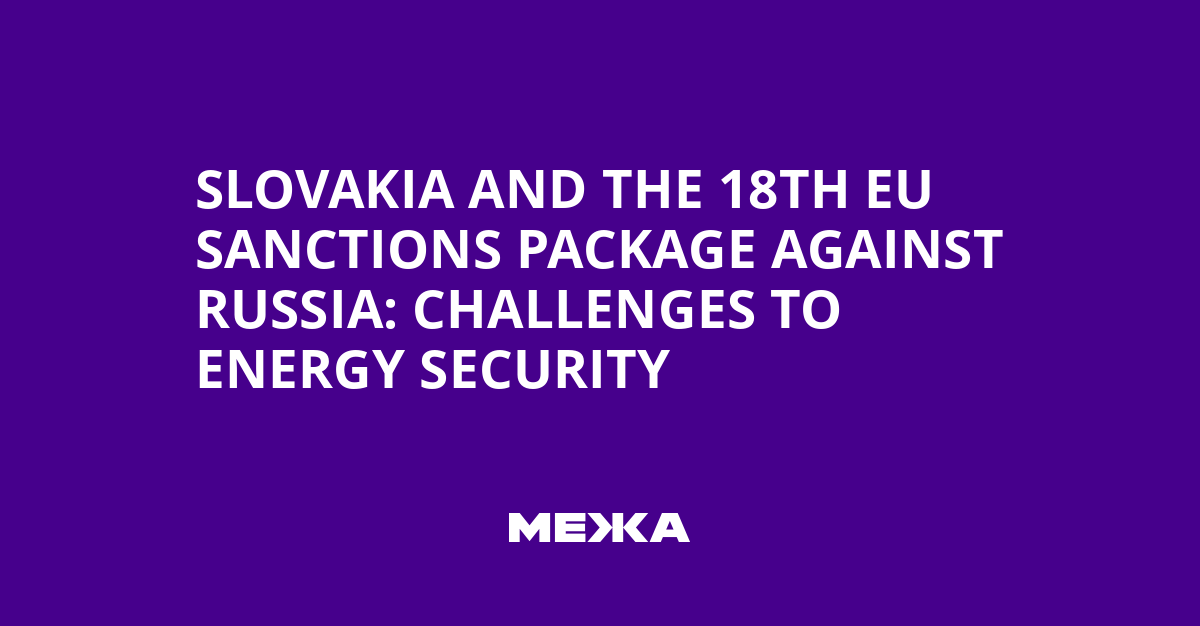
As reported by the online media Suspilne.
The Slovak government is actively considering proposals to impose sanctions against the Russian Federation as part of the European Union’s 18th sanctions package. The main focus is on the potential impact of these sanctions on the country’s economy.
Representatives of the Slovak Ministry of Foreign Affairs stated:
“At this time, internal discussions between member states and EU institutions are still ongoing and not yet concluded. The Slovak government has also informed EU members and institutions that before agreeing to the 18th package, it must have a clear understanding of the REPowerEU plan and its impact on our national and regional energy security, to which the recent dramatic escalation in the Middle East may become a new factor.”
It was previously reported that Hungary and Slovakia expressed disagreement with the European Commission’s plan to stop purchasing gas, oil, and nuclear fuel from Russia.
Slovak Prime Minister Robert Fico emphasized that the country will not support the EU’s 18th sanctions package without a clear energy security plan from the European Commission.
He also noted that Slovakia could face a crisis situation if gas, oil, and nuclear fuel supplies from Russia are completely cut off.
The European Commission announced that it plans to discuss Slovakia’s “concerns” regarding potential problems that may arise from stopping the supply of Russian energy resources to the EU.
The REPowerEU initiative aims to reduce dependence on Russian fossil fuels by 2030 in response to Russia’s invasion of Ukraine in 2022.
Overview of the EU’s 18th Sanctions Package Against Russia
In June 2025, the European Commission presented the 18th sanctions package, which includes new restrictions on Russia’s energy and banking sectors. These sanctions also cover transactions related to the Nord Stream project.
Energy Sector and Gas
Ban on all transactions related to Nord Stream 1 and 2: EU operators are prohibited from conducting deals through these pipelines.
Price cap on oil products lowered from $60 to $45 per barrel to make it harder for Russia to generate revenue.
Expansion of the “shadow fleet”: 77 more tankers that transported oil illegally have been added to the sanctions list.
Ban on importing oil products made from Russian crude to prevent sanctions evasion through third countries.
Financial Sector and Banking
Transformation of SWIFT restrictions into a full transaction ban: targeting 22 Russian banks and third-country operators that help circumvent sanctions.
Imposition of sanctions on the Russian Direct Investment Fund (RDIF) and its subsidiaries.
You might be interested in: